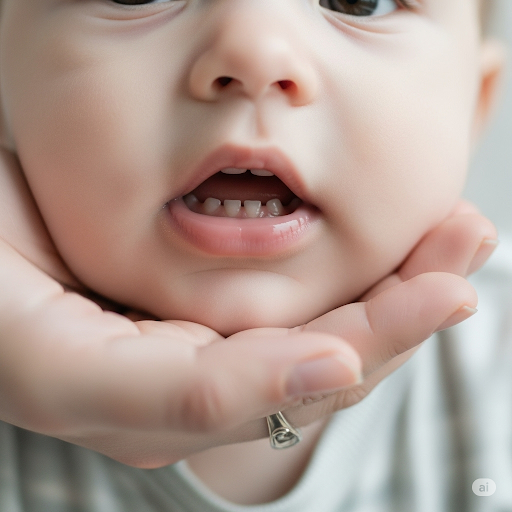Teething in Babies: Symptoms, Concerns, and Relief | Aloanne
21-05-2025
16:35

Teething in Babies: Symptoms, Concerns, and Relief | Aloanne
Teething is one of the most important milestones in a baby's growth journey. But let's face it, this period can be confusing and even exhausting for mothers at times. Between your baby's restlessness, sleepless nights, lack of appetite, and crying, many questions can swirl around in your mind. In this article, we answer not only the signs of teething but also a mother's inner voice.
When Does Teething Start?
The first teeth usually appear between 4 and 7 months. However, this process can occur earlier or later in some babies. The first teeth to appear are usually the lower central incisors. The complete set of primary teeth can take until 2.5–3 years of age.
The Most Common Teething Symptoms
Excessive saliva production
Constant urge to bite things
Swelling and redness of the gums
Restlessness, crying spells
Disturbance in sleep patterns
Mild fever (below 38°C)
Anorexia
Note: If your fever exceeds 38°C (100.4°F) or you experience other symptoms, such as diarrhea or a rash, you should consult a healthcare professional. Not all symptoms are caused by teething.
Questions from Motherhood During Teething
Mothers don't just observe the symptoms during this period. They live this process with questions coming from their hearts. And they often feel alone. Here are the questions mothers are most curious about and silently search online:
“Is my baby in pain or am I exaggerating?”
Every mother instinctively senses her baby's discomfort, but she can't be sure. Teething can be painful, but each baby experiences it to a different degree.
"Does teething cause fever? Which fever is normal?"
A low-grade fever (37.5–38°C) may occur during this period. However, if the fever is higher or lasts longer, it's important to consult your doctor.
"He's not eating and he's refusing to breastfeed. Is that normal?"
Yes. Your baby may refuse to eat or nurse for a while due to itchy gums, pressure, or pain. This is temporary.
“Will he get sick if I give him cold things?”
Clean, sterile teething rings or cold fruit in a mesh bag (for babies 6 months and older) can be soothing. Make sure it's cool, not ice cold.
"How many teeth are there? When will this process end?"
A total of 20 primary teeth emerge. The first tooth typically appears around six months, and the final teeth appear around age two and a half. The entire process can take one and a half to two years, but not every tooth is as difficult to grow.
"Should I use medicine or gel? Would that be right?"
Every mother's approach to this issue is different. It's safest not to use any products without a doctor's recommendation. Some topical herbal remedies can be helpful.
What Can You Do at Home?
Teethers: Clean, cool teethers can soothe sore gums.
Finger massage: You can massage the gums by applying light pressure with your clean finger.
Cold foods (6 months+): Fruits such as apples and pears can be given by placing them in the mesh feeding apparatus.
Prevent irritation: Saliva can irritate the chin and mouth area. It's helpful to wipe it with a soft, clean cloth and, if necessary, follow it with a gentle moisturizer.
Final Word: First Information, Then Shopping
Teething is a difficult but temporary process. The most important thing is to observe your baby's needs and take the right steps. At Aloanne.com, we want to support you with accurate information during this time.
If you're looking for supportive products, you can explore our natural baby care products, teething rings, and special recommendations for mothers on our website. But first, ask yourself: "What does my baby need?"
You have the answer.
mustela
bepanthol baby
sebamed baby
biolane
mustela
bepanthol baby
sebamed baby
biolane
